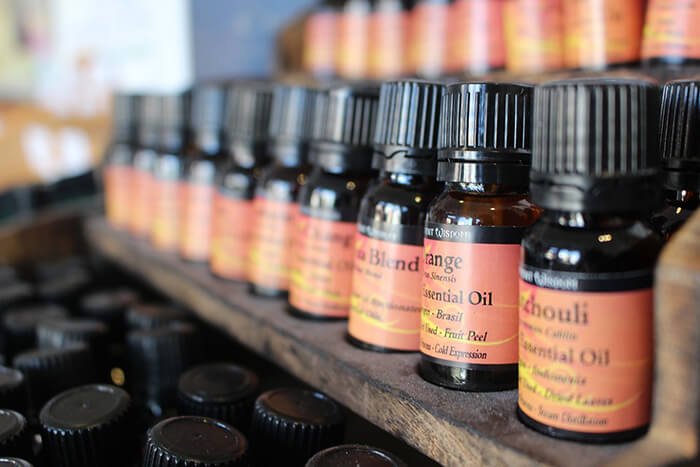Many people scoff at holistic therapy, often calling into question the effectiveness of such treatments.
What should truly be understood, however, is that such treatments can help the patient in indirect ways.
When done in conjunction with a trained and licensed therapist and under the watchful eye of one’s doctor, participating in such treatments gives patients a sense of control.
This sense of control is incredibly important, and this alone has been proven to help patients recover much faster than they would have otherwise.

However, many of these therapies do have a genuine, if subtle, effect.
Aromatherapy happens to be one of the most common forms of holistic therapy, and for a good reason.
Unlike the other four senses – which are routed through the thalamus before reaching their designated parts of the brain – our sense of smell is directly tied to the limbic system.
How this works is that an essential oil molecule, when inhaled through the nasal cavity, is transported to the limbic system by a receptor neuron.
In other words, essential oils, when inhaled, go directly to the brain.

Because this limbic system is responsible for controlling heart rate, blood pressure, breathing, stress levels, hormones balance, and memory, essential oils can have a direct physiological and psychological effect on the brain.
For example, researchers have found that certain essential oils like Sandalwood and Frankincense can increase oxygen levels in the brain by up to 28%.
This increase in oxygen in the blood has profound effects on our learning abilities, emotions, and immune functions.
And this is without considering that scents in general are also particularly good for memory recall.

When applied correctly, essential oils have also been proven to be highly beneficial to the human body from both a mental and a physical standpoint with essentially no ill effects.
Because of how it stimulates the olfactory nerves and can affect the brain directly, there is currently ongoing medicinal evaluations in the interest of using essential oils for helping with the recovery of brain injuries.

As a result of how complicated the brain is, brain injuries can be highly traumatic (even when it is classified as a mild trauma) and can take up to years before a full recovery is achieved.
To the interest of healthcare experts, Frankincense oil has been shown to help speed up a brain injury recovery.
How this essential oil helps is by encouraging the oxygenation of brain-bound blood.
This in turn assists with effective oxygen absorption, which allows the brain to process, heal, and retain information better.

It is able to do this because its molecular makeup includes sesquiterpenes, which makes it capable of not only crossing the blood/brain barrier, but allows it to be directly absorbed by the skin, follow nerve pathways, and follow the meridians.
Sesquiterpenes also are responsible for Frankincense oil’s effects on the brain by stimulating the limbic system and glands directly, promoting memory recall and emotion regulation.

It is also easy to use essential oils.
While you can apply it directly to skin after diluting it with an appropriate oil, diffusion and inhalation easily grant us the same benefits!
Share away!






